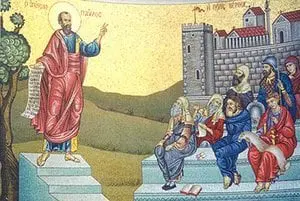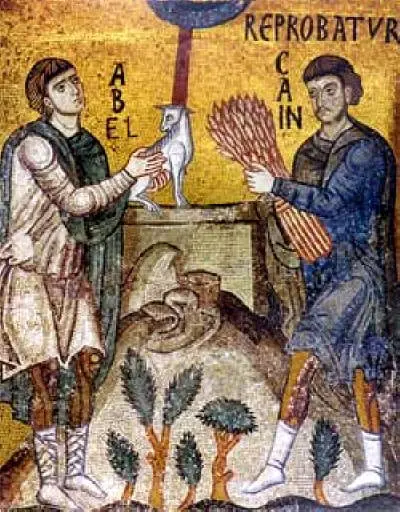Holy Synod of the Estonian Church cannot be accepted the idea of the Russian world replaces the evangelical teaching
The Holy Synod of the Estonian Orthodox Church, which is an autonomous church under the Moscow Patriarchate, issued a statement on April 2 that differed from the adopted program document of the World Council of the Russian People, held at the end of March at the Christ the Savior Church in the Russian capital .
This is another Russian church jurisdiction outside the borders of the Russian Federation, which is forced to explain to its parishioners and local secular authorities whether it shares the ideas of the political and ecclesiastical center in Moscow.
The document “Present and Future of the Russian World” speaks of the divine election of the Russian people and the existence of a “Russian world” whose borders go beyond the borders of the Russian Federation and whose visible center is in Moscow. Moscow is waging a “holy war” for the liberation of the “Russian world” on the territory of its neighboring country, which is called “southwestern Russian lands”. Western democracies are defined as “satanic” and enemies of God’s chosen Russian people, who are destined to save the world.
The silence of the Estonian Metropolitan Evgeni, who was denied a permit to stay in Estonia and manages the diocese remotely from Moscow, was read by the authorities in Estonia as a political agreement with this document.
In the Estonian parliament, they raised the question of why a week after the issuance of the so-called “nakaz” (Russ. execution decree) The Estonian Orthodox Church has not commented on it. The Estonian MP A. Kalikorm from the leading party “Fatherland” proposed to terminate the profitable leases of the Estonian Church for symbolic sums for a period of 50 years: “The tenant publicly declares his desire to wage a holy war against his landlord. Such a tenant must release the premises due to unscrupulous behavior and stop its anti-Estonian actions here. The government has no other option but to terminate the contract and transfer the properties to the Estonian Apostolic Orthodox Church (Patriarchy of Constantinople). This will preserve the possibility for all Orthodox believers to continue to serve God in the churches “.
Due to these and other actions of the secular authorities, the Synod of the Church of Estonia issued a statement.
The statement said, first, that the document was the work of a public organization, not a church one, although it was chaired by the Russian Patriarch Kirill and involved dozens of metropolitans and members of the Synod of the Russian Orthodox Church. In addition, the members of the Estonian Church are said to love their homeland Estonia and consider themselves part of the local society, which the document defines as hostile to the godly “Russian world”.
Finally, it is stated that the idea of the Russian world supersedes the evangelical teaching and cannot be accepted by Christians in Estonia.
Here is the full text of the statement:
“At the end of March this year, a meeting of the World Russian People’s Assembly was held in Moscow, the decisions of which had a great impact in Estonian society. Understanding the concern of the society, the Synod of the Estonian Orthodox Church of the Moscow Patriarchate sends a message to the parishioners of our churches and to all , who are interested in the position of the Estonian Orthodox Church.
The Russian People’s Assembly is a public organization of another country, whose decisions, despite the participation of representatives of the Russian Orthodox Church, have no relation to the Estonian Orthodox Church of the Moscow Patriarchate. Many times in the statements of our Synod we have indicated the self-government of our Church in “ecclesiastical-economic, ecclesiastical-administrative, school-educational and ecclesiastical-civil matters” (Tomos 1920). We do not accept the final document of this Council because, in our opinion, it does not correspond to the spirit of evangelical teaching.
The parishioners of the Estonian Orthodox Church (EOC) as citizens and residents of Estonia have a deep respect and love for the culture, customs and traditions of their country and consider themselves a part of the Estonian society.
The idea of the Russian world replaces the evangelical teaching and we as Christians cannot accept it. The church is called to preach peace and unity in Christ. In our churches we preach this every day. Thanks to this, people of different views, different nationalities, different beliefs have the opportunity to participate in the worship service and receive spiritual support, support and consolation.
We call on all members of the Estonian Orthodox Church (EOC) to pray for the peace and security of all people in our independent Estonia.”







